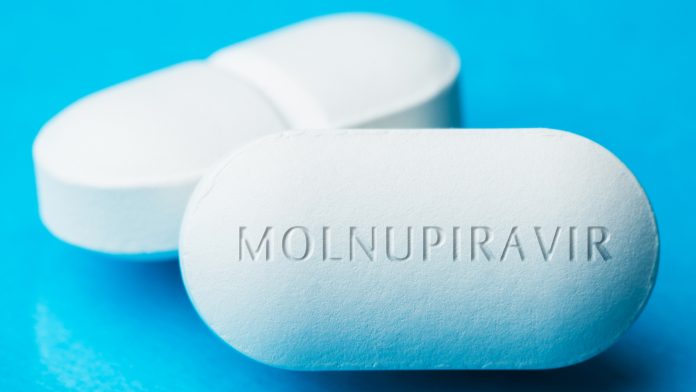
The World Health Organization (WHO) has expressed that the molnupiravir antiviral medication should be administered to patients with non-severe COVID-19 who are at an elevated risk of hospitalisation.
The WHO Guideline Development Group of international experts conditionally recommended that molnupiravir be employed to minimise hospitalisations for individuals with non-severe COVID-19. Patients at the highest risk include those who are not vaccinated from COVID-19, older adults, and people with weak immune systems or chronic conditions.
However, the WHO panel, whose recommendation is published in The BMJ, expressed that molnupiravir should not be given to young and healthy patients, including children, and pregnant and breastfeeding women due to potential harms.
How does molnupiravir treat COVID-19?
Molnupiravir is an antiviral drug that effectively prevents coronavirus from growing and spreading; the medicine is utilised at the earliest opportunity following infection from the disease and can help fight the progression of more severe symptoms.
The WHO team developed their recommendation based on novel data from six randomised controlled trials that comprised 4,796 patients – the most extensive data set on molnupiravir to date.
The researchers obtained moderate certainty evidence from these trials that elucidated that molnupiravir reduces the risk of hospital admission by 43 fewer admissions per 1,000 and time to symptom resolution by an average of 3.4 fewer days. Furthermore, low certainty evidence demonstrated a small effect on mortality – six fewer per 1,000 patients.
The team outlined mitigation strategies that are critical at the population level, such as pharmacovigilance and antiviral resistance monitoring due to concerns about genotoxicity – when a cell’s genetic information become damaged, resulting in mutations. Resistance and new variants are also concerns.
The WHO research has not made a recommendation for patients with severe to critical COVID-19 to use molnupiravir as there is no trial data for this population. Moreover, they stated that cost and availability issues associated with the drug might create poor access in low- to middle-income countries, further increasing health inequalities.
Additional treatments
The WHO team also advocated for the use of a treatment that combines two antibodies – casirivimab and imdevimab. This treatment should be used in people who do not have the Omicron variant, as emerging research suggests it lacks effectiveness against this strain of the disease.
These recommendations are part of the living guideline developed by the WHO, which received methodological support from the MAGIC Evidence Ecosystem Foundation. The project aims to ensure robust guidance for managing COVID-19 and enables healthcare professionals to make better patient decisions.
Living guidelines are a crucial tool in rapidly evolving research areas such as COVID-19, as they allow experts to update previously vetted and peer-reviewed evidence as new information arises. The research builds on prior recommendations for Baricitinib, interleukin-6 receptor blockers, and systemic corticosteroids to be used for individuals with severe or critical COVID-19. Additionally, the use of sotrovimab for people with non-severe COVID-19 and against the use of convalescent plasma, ivermectin and hydroxychloroquine for patients with any severity of COVID-19.
The team are currently developing guidelines for remdesivir, fluvoxamine and nirmatrelvir/ritonavir.

























